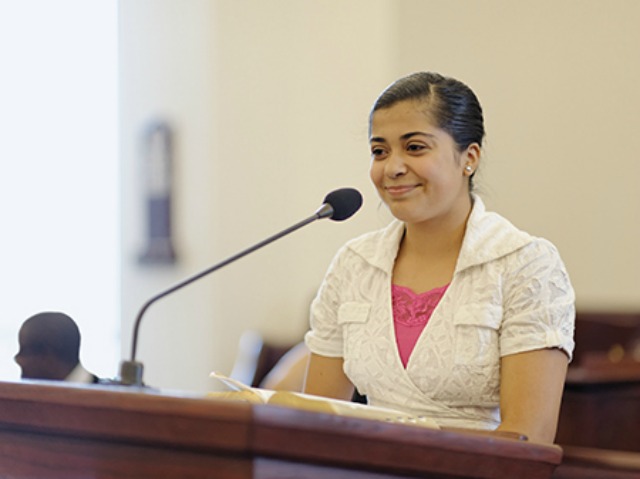Question
Hi Gramps!
I was wondering what your thoughts were regarding church discipline for minors, specifically victims of sexual assault? In some cases, victims of abuse and sexual assault of all ages are barred from taking the sacrament and subjected to a repentance process as if they were equally responsible for the assault and abuse. Why do you think this happens? I can’t wrap my head around why a victim, especially a teenager, would be shamed and separated from their church family post rape. Why?
Jessica
Answer
Dear Jessica,
Thank you for writing to me. This is a sensitive issue, and as such it is a topic that some people would rather avoid, but it is very important that we, as church members, discuss these things. First, I would like to clarify that what you have suggested here is not the norm. I am not so naïve as to believe this has never happened but it certainly isn’t Church policy.
Sister Chieko Okazaki, a former member of the General Relief Society Presidency gave a wonderful talk about healing from sexual abuse and she touched on the topic of survivors working with their Bishops. She said:
“I think it is very important that you seek out your bishop or another priesthood leader when you feel you can and share this burden. It may be hard to talk to a man if a man was your abuser. Find a trusted woman leader to talk to and accompany you when you are ready to go to your priesthood leader. In material prepared with the support of the Brigham Young University’s Women’s Research Institute, I quote, “Victims need to be believed. They need to be listened to. They need to be relieved of any inappropriate guilt about their role in the abuse. Many women reported the strength they felt as their bishops and therapists worked together. This arrangement allows bishops to concentrate on the spiritual and physical welfare of their ward members while the trained professional works with the victim to resolve emotional issues.” One of the women was so anxious and frightened about going to her bishop that she wouldn’t let him shut the door of his office during their first conversation. But when he heard her story, “he cried with me,” she said, “and that is when I started trusting him. He is the first man I ever remember trusting. I gave my therapist permission to talk with him to better understand how he could best help me.” Healing from Sexual Abuse
I’d like to point out a couple things that Sister Okazaki mentioned. First, it is understandable if a rape survivor is nervous about speaking to a Bishop alone. If it helps to take a trusted woman along, please feel free to do so.
Second, she speaks of being relieved of any “inappropriate guilt about their role in the abuse.” Shame is such a common result of abuse and rape and it can be crippling.
Third, she speaks of bishops and therapists working together. This is so important. As you know, Bishops are not trained counselors or therapists.
Finally, in the story Sister Okazaki shared the sister’s bishop was very helpful. Unfortunately, not all bishops are as helpful in dealing with these matters, for which they have not been trained (this is why therapists are so important.) About those times, I would share the words of President Uchtdorf:
“And, to be perfectly frank, there have been times when members or leaders in the Church have simply made mistakes. There may have been things said or done that were not in harmony with our values, principles, or doctrine. I suppose the Church would be perfect only if it were run by perfect beings. God is perfect, and His doctrine is pure. But He works through us—His imperfect children—and imperfect people make mistakes.” Come, Join with Us
Elder Holland once gave a beautiful talk at BYU about the Law of Chastity. He was NOT talking about abuse or rape here, but what he said is related to our discussion. Consider his words:
“In this matter of counterfeit intimacy and deceptive gratification, I express particular caution to the men who hear this message. I have heard all my life that it is the young woman who has to assume the responsibility for controlling the limits of intimacy in courtship because a young man cannot. What an unacceptable response to such a serious issue! What kind of man is he, what priesthood or power or strength or self-control does this man have that lets him develop in society, grow to the age of mature accountability, perhaps even pursue a university education and prepare to affect the future of colleagues and kingdoms and the course of the world, but yet does not have the mental capacity or the moral will to say, “I will not do that thing”? No, this sorry drugstore psychology would have us say, “He just can’t help himself. His glands have complete control over his life—his mind, his will, his entire future.”
“To say that a young woman in such a relationship has to bear her responsibility and that of the young man’s too is the least fair assertion I can imagine. In most instances if there is sexual transgression, I lay the burden squarely on the shoulders of the young man—for our purposes probably a priesthood bearer—and that’s where I believe God intended responsibility to be. In saying that I do not excuse young women who exercise no restraint and have not the character or conviction to demand intimacy only in its rightful role. I have had enough experience in Church callings to know that women as well as men can be predatory. But I refuse to buy some young man’s feigned innocence who wants to sin and call it psychology.
“Indeed, most tragically, it is the young woman who is most often the victim, it is the young woman who most often suffers the greater pain, it is the young woman who most often feels used and abused and terribly unclean. And for that imposed uncleanliness a man will pay, as surely as the sun sets and rivers run to the sea.” Souls, Symbols, and Sacraments
Elder Holland’s words are even more poignant when we consider the topic of rape. Elder Rex D. Pinegar speaking specifically of rape, makes this point as well, he said:
“Yes, the unfortunate and innocent victim is innocent before the Lord. We recognize that such an individual feels guilt, feels she has lost that which she cannot regain. But we hope within that person’s mind will reside the complete assurance that the Lord is just, that she is still a child of God, and that God loves her. We also hope that family and friends would have only an increase of love for her.” Let God Judge Between me and Thee
Elder Pinegar also gave some counsel to bishops:
“NOTE: I must say a word to fathers, husbands, and priesthood leaders who may have the responsibility of counseling the unfortunate victim of such a crime. Upon you rests the heavy spiritual responsibility to preserve her spiritual and emotional stability. You may be the only one to share the burden with her and the Lord. Extend your understanding, confidence, and sympathy. Preserve in totality the extreme trust placed in you. Prayerfully seek the counsel of the Lord in the help you extend, and reassure her of the Lord’s love for her. Remember, she feels almost total loss of self-worth. She may feel like a discarded, misused object, rather than the incredibly priceless child of God she is. She will need the inspired strength of priesthood power to sustain her. A blessing would be most appropriate. Her emotions are likely to be at the breaking point for an extended period of time while you strive to rebuild her confidence. You must not fail her in any commitment you make, or her confidence in men may never be regained. This is very serious, and all such brethren are responsible before God in all their counseling and priesthood responsibilities.”
In closing, Jessica, I assure you of the power of Christ. Because of His Atonement, He has the ability to heal all wounds. Wounds that are caused intentionally, and those that occur due to weaknesses and misunderstandings. I’ll leave you with the words of Sister Okazaki:
“Our Heavenly Father’s spirit is constantly available to us. He sorrows with us and is with us in our pain when abuse occurs. He is there when we start to make the first steps back. His love is steadfast. We may feel betrayed by our family, our Church, our society, and even by God, but God does not betray us. His love is never changing.”
Gramps






